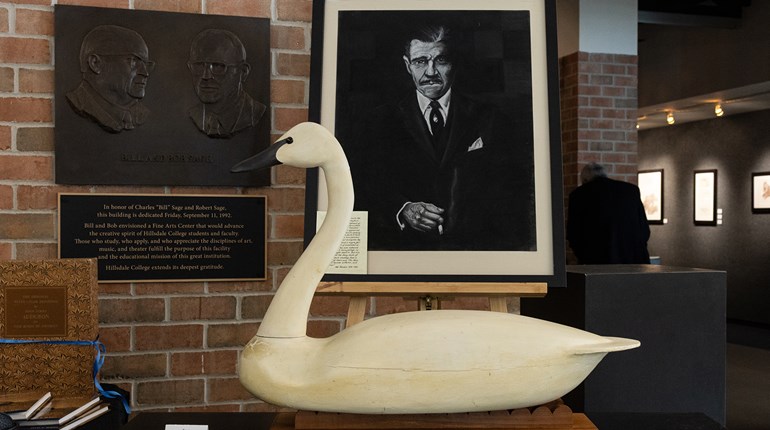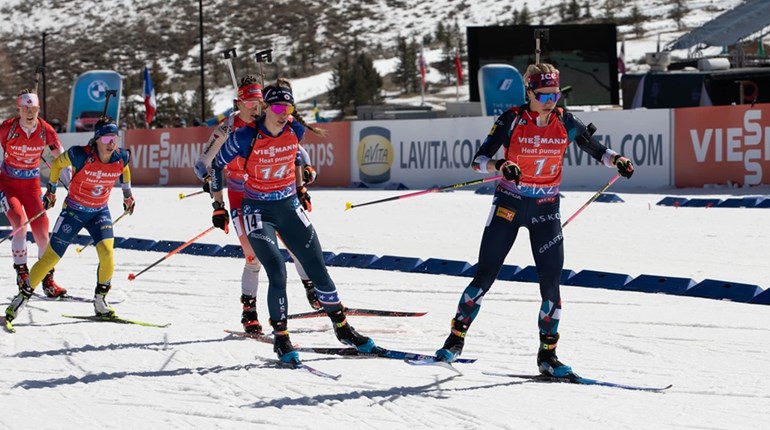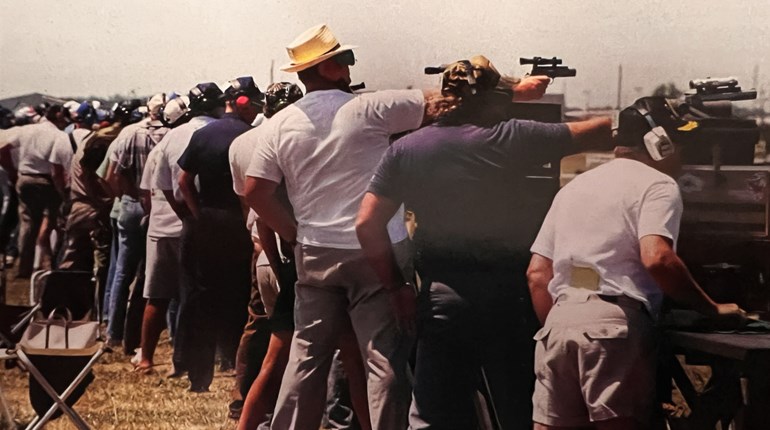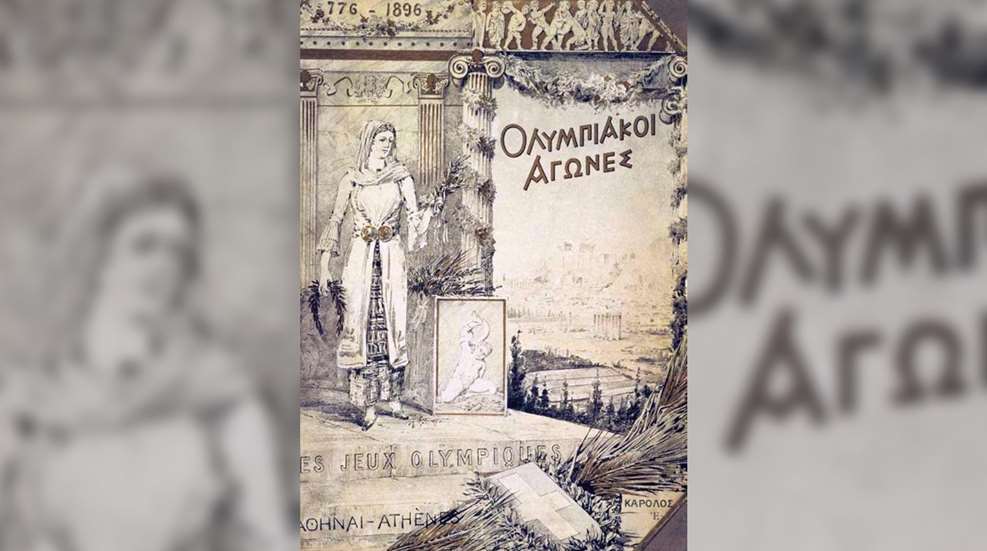
Above: The cover of the official report from the Athens Summer Olympics in 1896.
Below is an excerpt from the seminal 1978 work, Olympic Shooting, written by Col. Jim Crossman and published by the NRA.
The Origin of The Olympic Games
By Colonel Jim Crossman
History records that the first Olympic Games were held in 776 B.C., when Coroebus won the sprint, and thereafter every four years—an Olympiad—for over a thousand years.
The Games were held on the west side of the Peloponnesus, a peninsula between the Ionian and Aegean seas, at Olympia, a sacred area dedicated to the worship of Zeus, head of the family of 12 major Greek gods known as Olympians. The area was a center of worship for all Greeks. The Olympic Games became of tremendous importance and nothing interfered with them—not even war. The Truce of Zeus halted the fighting between city-states, so that the Games might be held.
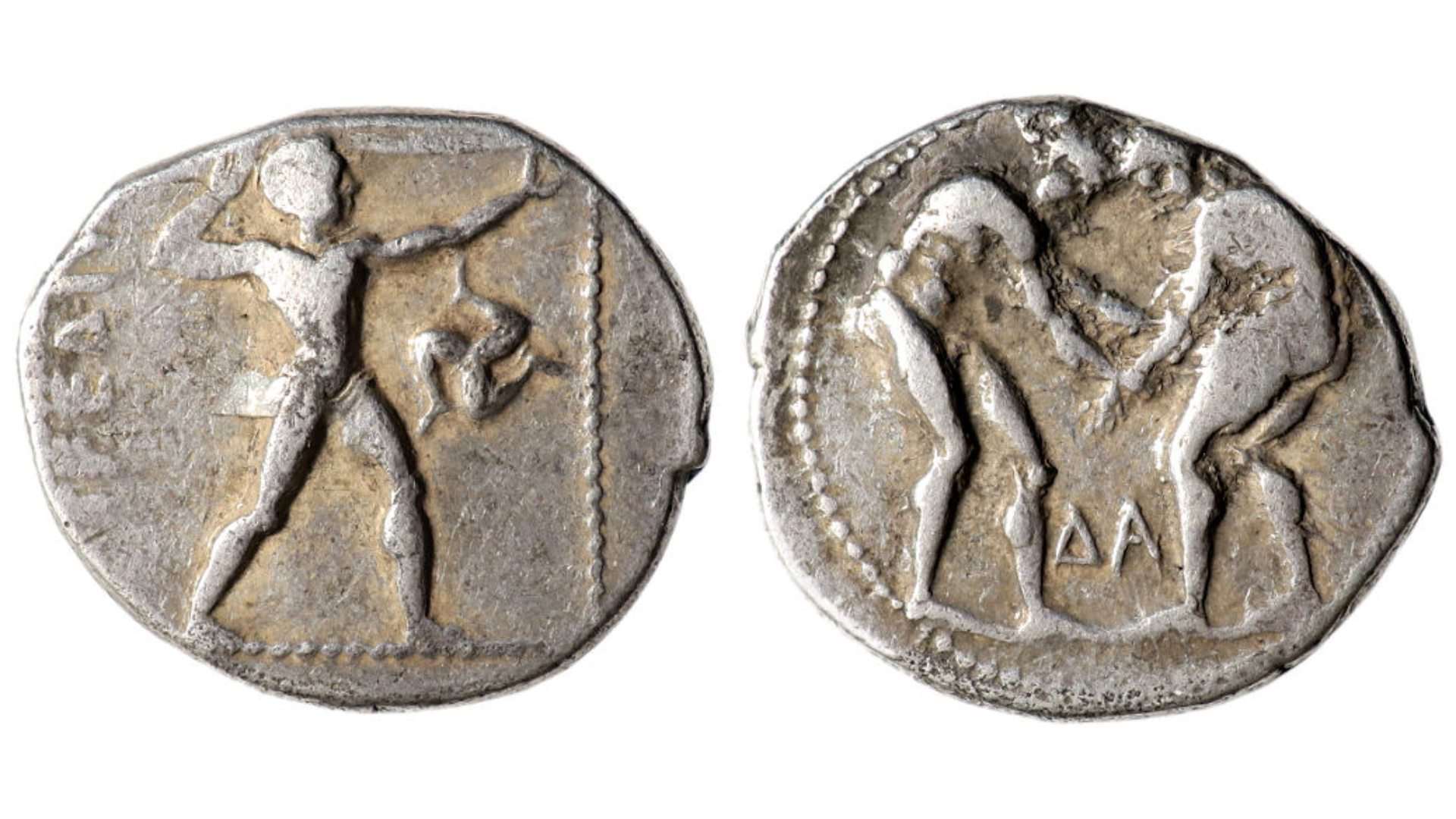
The Olympic Games were confined to running at first. Later, pentathlon, boxing, chariot racing and other sports were introduced. As many as 13 sports were included in one year, although there were 23 different sports played at one time or another.
With the rise of the Roman Empire and the decline of the Greek civilization, the Games suffered. Some cities hired athletes—professionals—to carry their colors.
The establishment of Christianity as the state religion of the Roman Empire led to the persecution of other religions, including that of the Greeks. The Christian Emperor Theodosius I finally banned the Games in 392 A.D. His successor ordered the demolition of the sacred grounds of Olympia, and earthquakes and floods later completed the work.
The ruins of Olympia remained buried until the 1880s, at which time German archeologists started excavating the area. Their efforts disclosed the great temple which contained the celebrated statue of Zeus by Phidias—one of the Seven Wonders of the World—and the workshop where the statue was made.
It remained for an unlikely little Frenchman, only five foot, three inches tall, to revive the Olympic Games in which most of the contestants were big, brawny athletes.
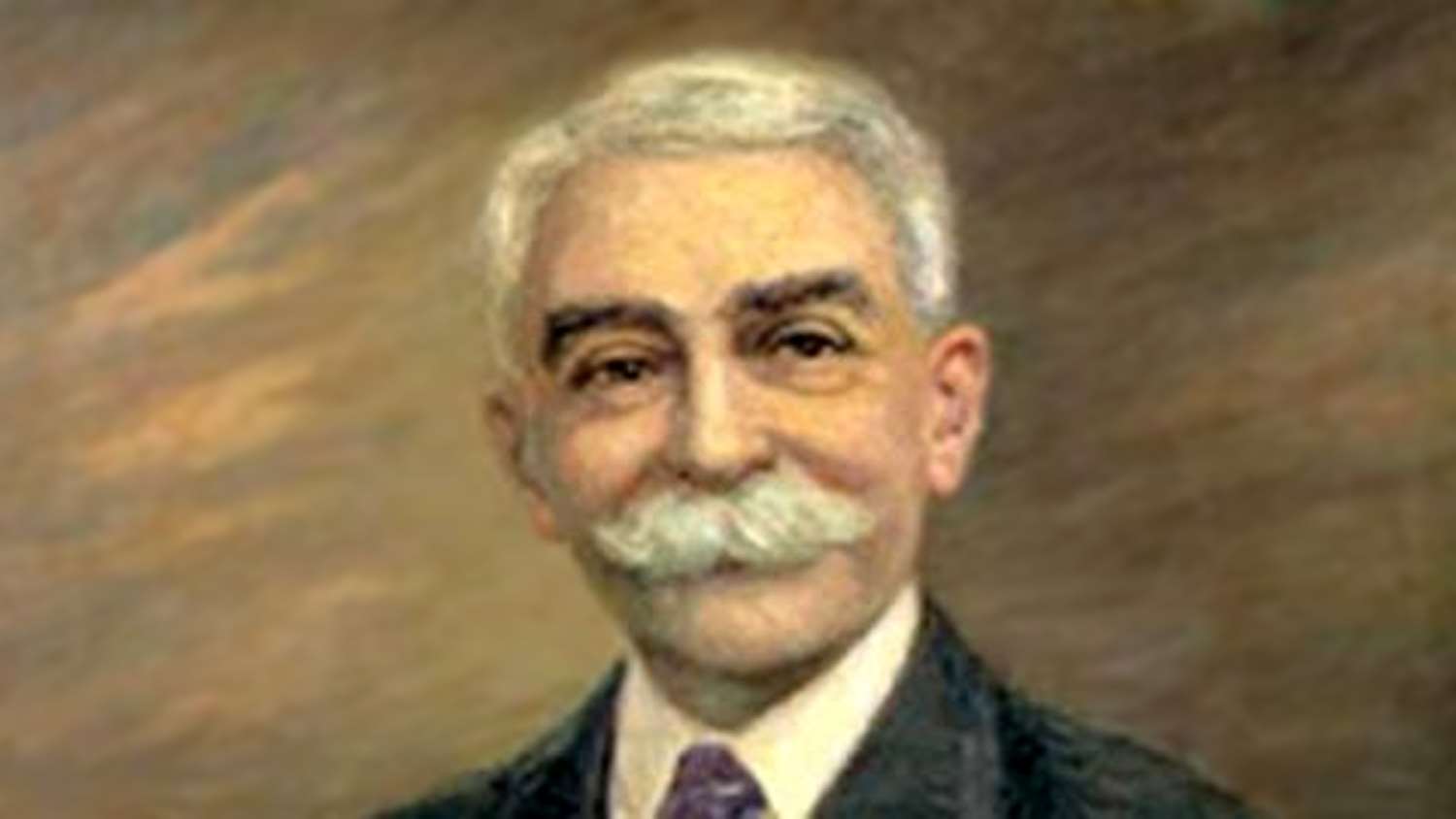
Baron Pierre de Coubertin was concerned about the spirit and stamina of young Frenchmen after the serious French defeat in the Franco-Prussian war of 1870. As he traveled, he saw that the French attitude towards the Games was different from that of other countries, especially the United States and England. Athletics in France were discouraged as interfering with studies, whereas in many other countries athletics were officially part of the school program. De Coubertin felt that this made a real difference in the young men produced by these systems—and that the French system was bad. During a visit to the ruins of Olympia, then being excavated, he was inspired by the idea that it would be good for the world, as well as for France, if athletics could be encouraged by renewing the Games held for so long at that spot.
The Baron proposed the revival of the Olympics in 1892, but there was little enthusiasm for it. He worked hard for the next four years to arouse interest in the idea, proposing the scheme again in 1894 to an international athletic meeting. The idea took hold, and after much enthusiastic discussion, the decision was made to hold the first Games in 1896 in Athens, the capital of Greece.
Despite the brief period for planning the Games, building a stadium, and accomplishing many other tasks, the first Olympic Games came off in Athens on schedule—and they were done with imagination and color.
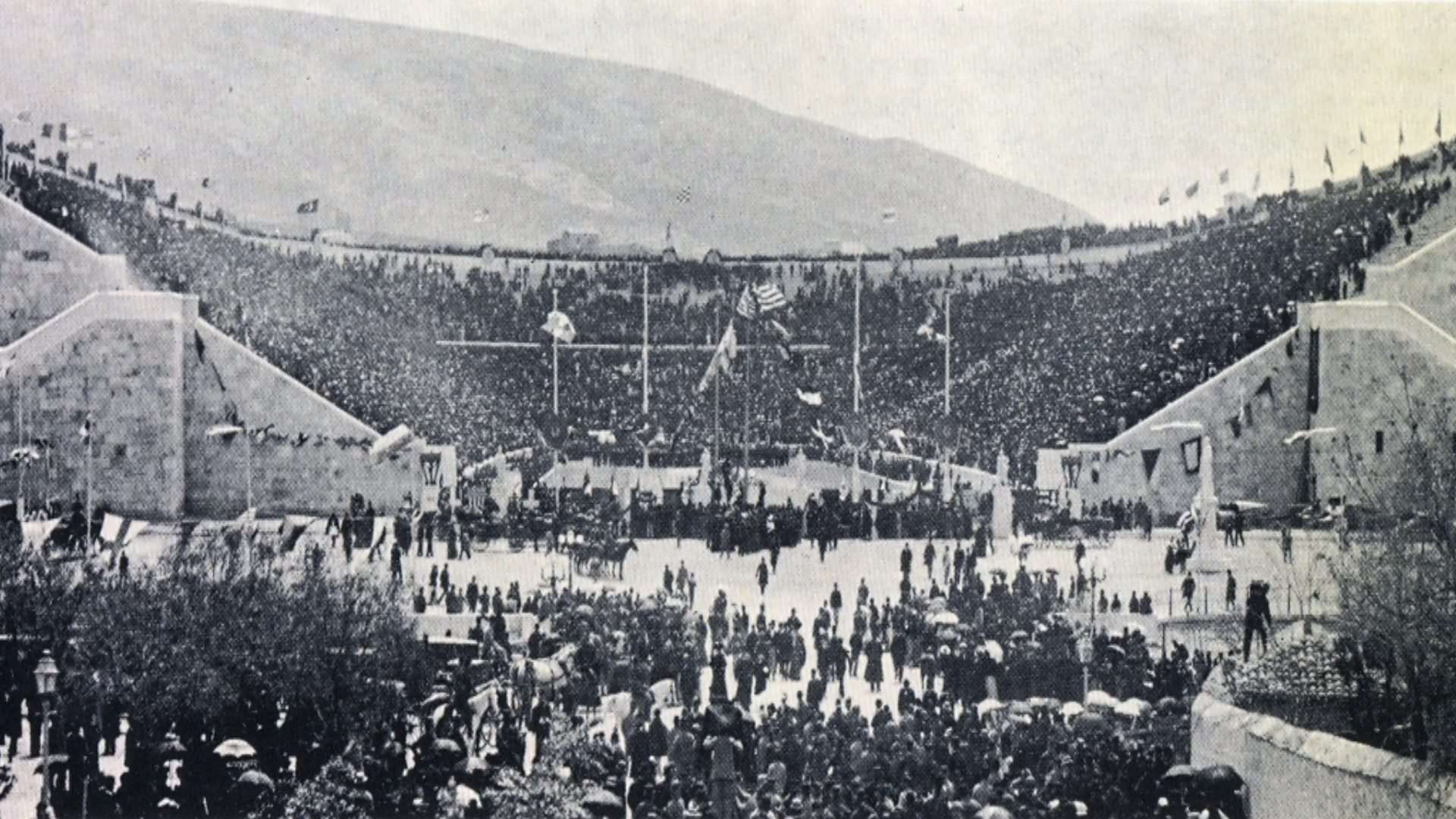
Flushed with the success of the first try, the International Olympic Committee, which had been established to monitor the Games, awarded the second Olympics to Paris. Since the Baron was unable to convince his countrymen of the importance of the Games, they were held as an adjunct to the Paris exposition of 1900. Facilities were poor, planning was incomplete—and the Games did not go the way the Baron had hoped.
Maybe they would go better in the New World. Chicago was given the privilege of the third Games, but the Windy City finally passed them to St. Louis, which was having a big exposition in 1904. In St. Louis, the Games were once again a side-show to a fair, and once again they were not very successful. Few foreign countries participated, and there were no shooting events.
With one success and two failures on his hands, the Baron proposed that an additional set of Games should be held every four years at Athens, between the main Olympic Games, which would be held in various other places. He hoped that the success of the first Games in Athens would be carried on in future Games there and that the Greek Games would serve as models for other countries.
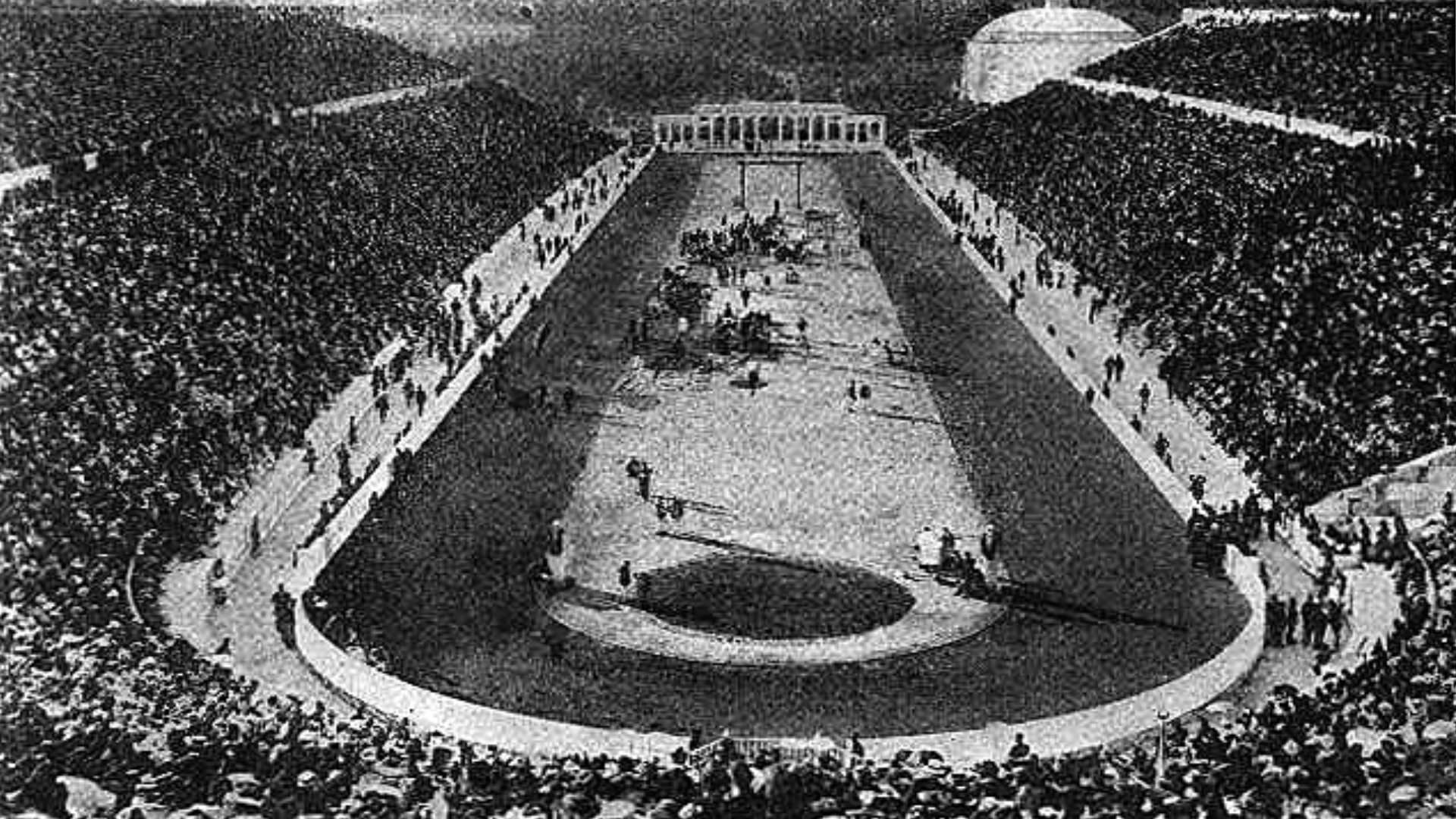
So the Games returned to Athens in 1906 and again were successful, but before the end of the following four-year period, political troubles caused the Olympic Committee to cancel the next Games scheduled for Athens and the series was never reinstated. The 1906 Games are now considered unofficial by the International Olympic Committee, although the personnel and records are listed in U.S. Olympic books.
The fourth Games, held in London, were fairly successful, except for fighting and bickering among the officials. Many thought the idea of the Games should be given up, but the Games in Stockholm in 1912 proved that the Swedes had caught the point of de Coubertin's philosophy and that they had seen the mistakes made at the Games in London, St. Louis and Paris. As a result, from all accounts, the V Olympiad was just about perfect. The success of the Olympic movement was assured.
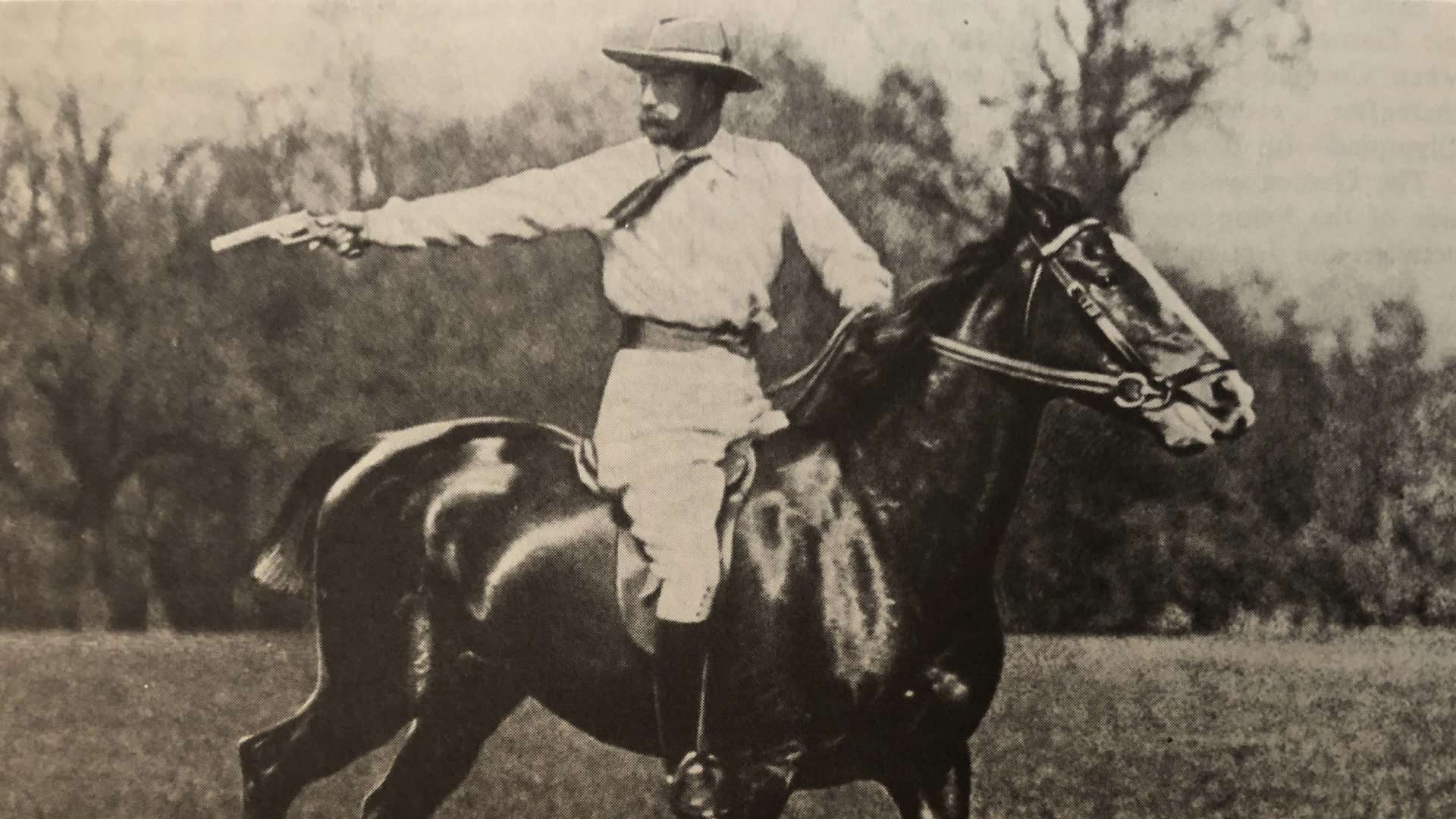
The philosophy of the Baron is expressed in his famous statement:
"The most important thing in the Olympic Games is not to win but to take part, just as the most important thing in life is not the triumph but the struggle. The essential thing is not to have conquered but to have fought well."
It helps keep perspective to read this once in a while, as the tendency is to consider only the winners—and generally only the gold medal winners. In the same way, the Games are supposed to be contests between individuals, not between countries. While the theory is good, in practice most everyone is interested in seeing "how the United States did" or "how the Russians did" and people tend to equate the greatness of a nation with how many gold medals its participants won.
The Games bring together all nations, and the athletes mingle and make friends with the athletes of other countries. Occasional problems arise, often problems caused by officials rather than competitors. Many people who have been involved in the Games see the weaknesses of the Games, but they also see the strength of the Games and are in agreement with de Coubertin's philosophy. There are enough of these people to keep the Games going successfully for a long time.
The upcoming Olympic Games in Tokyo, Japan, are currently slated to begin Jul. 23, 2021, after an unprecedented one-year delay due to the coronavirus pandemic.—Ed.
See more:













